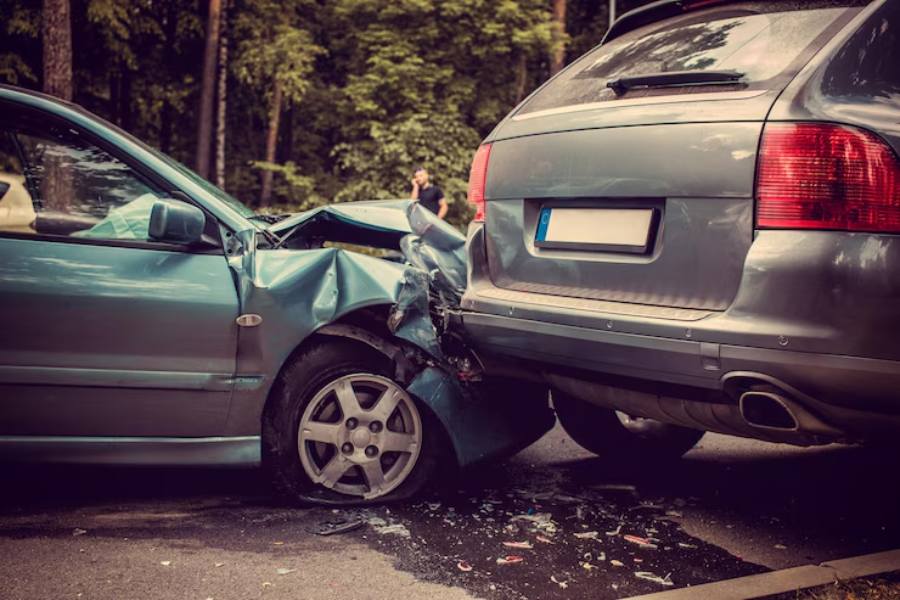Car accidents happen in a flash. One moment, you’re driving along, maybe thinking about lunch or your weekend plans. And, the next—bam. This makes your day take a dramatic turn. While no one wants to think about getting into an accident, knowing what to do afterward is very important.
Many car accident victims later realize that there were simple things they should have done right away. However, they didn’t, and these regrets can affect their safety, recovery, and even their legal rights.
So, if you’re ever in a crash, especially in a busy city like Long Beach, here are the most common regrets car accident victims report. Moreover, in this article, you will get to know how to avoid them.
Not Getting Checked by a Doctor Immediately
A common regret is not seeking medical attention right away. This is especially seen for seemingly minor discomforts that later turn into chronic issues.
Right after a crash, your adrenaline is pumping. You might feel “fine,” but that doesn’t mean you’re not injured. Many injuries don’t surface until hours or even days later. This particularly includes soft tissue injuries, whiplash, and internal damage.
However, delaying medical treatment not only risks your health but can also damage your injury claim. According to the expert Long Beach car accident attorney, each injury can lead to major financial losses. Be it in the form of medical expenses, lost wages, or significant pain and suffering. All of them, otherwise, could entitle you to compensation.
Pro Tip: Even if you feel okay, get evaluated within 24 hours. Medical records serve as crucial evidence.
Not Calling the Police at the Scene
One of the biggest regrets is skipping a police report. It happens mostly in those accidents that seem minor. But here’s the thing: without that report, it’s your word against theirs.
In Long Beach, where nearly 3,000 traffic accidents occurred in 2021 alone, local authorities expect drivers to call law enforcement after a crash involving injury or property damage. That official record could make or break your case.
A police report helps in the following:
Establish fault,
Documents witness accounts,
Creates an official record.
Not Documenting the Scene
In the chaos that follows a collision, many people forget to take photos or collect information. As a result, they later regretted it. Here’s what you should always try to gather (if it’s safe):
Photos of vehicle damage.
Positioning of all vehicles involved.
License plates.
Road conditions and signage.
Driver’s license and insurance info.
Witness names and contact details.
Having this visual and factual evidence can be a lifesaver, especially when insurance companies get involved.
Talking Too Freely to the Insurance Company
It’s natural to want to “just get it over with” and cooperate with the other driver’s insurance representative. But many victims later regret giving recorded statements or casually accepting quick settlements.
Insurance companies are trained to minimize payouts. Anything you say—like “I’m okay” or “It wasn’t that bad”—can be used against you.
Instead, you should talk to a lawyer first, especially one who understands local laws and traffic patterns. A qualified attorney will protect your interests and negotiate on your behalf.
Not Hiring an Attorney Early Enough
Many people think, “I don’t need a lawyer. It was just a fender bender,” or “I’ll see how things go.” Unfortunately, they realize later, when bills pile up, or claims get denied, that they needed legal help from the start.
Long Beach ranks among the top 20 U.S. cities with the highest number of unsafe speed-related crashes, and nearly 40% of fatal accidents here involve speeding. Navigating the legal system alone is like going into battle without a plan.
A seasoned attorney will:
Investigate your accident.
Collect and preserve critical evidence.
Handle negotiations with insurers.
Fight for fair compensation (medical bills, lost wages, pain and suffering).
Not Knowing the Full Value of Their Claim
One major regret is underestimating how much the accident will actually cost. Medical bills are just the beginning. What about lost workdays? Emotional trauma? Future rehab needs?
However, if you take the help of experienced attorneys, they fight for compensation that reflects the true, long-term impact of your accident. That includes coverage for:
Hospital and rehab costs.
Prescription meds and equipment.
Permanent disability.
Future medical care.
Ignoring Psychological Impact
Let’s not forget the mental toll. Anxiety, nightmares, or fear of driving again are real symptoms after a crash. Unfortunately, emotional trauma is often not taken seriously until it gets worse. But the law allows victims to claim for mental and emotional injuries, too, if they’re documented.
Final Thoughts
A car accident can turn your world upside down in seconds. While you can’t undo the moment itself, you can control what happens next.
By knowing what car accident victims often regret not doing, you put yourself in the best position to heal and get fairly compensated. All in all, accidents are overwhelming, but regret doesn’t have to be part of your recovery.


